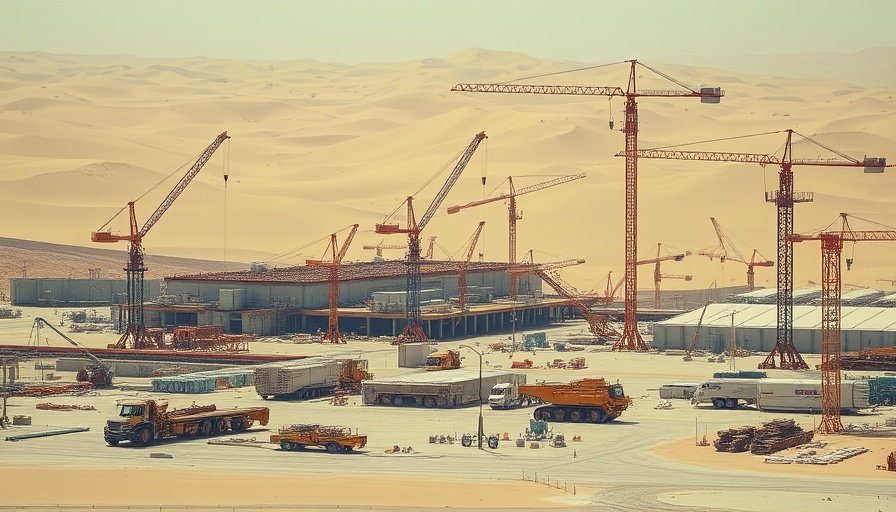
Understanding the Western Sahara Autonomy Negotiations
The status of Western Sahara remains a complex international issue, underlined by a series of negotiations that have intensified recently. As Algeria and Morocco engage in closed-door discussions, analysts are watching closely, as the outcome could have significant ramifications not just locally but continentally. The question of autonomy for Western Sahara has long been a contentious topic, with both nations holding firm positions. October’s UN Security Council meeting will be pivotal, particularly concerning the renewal of MINURSO, the mission responsible for overseeing a peace process that remains unresolved.
Historical Context: What Led to This Point?
The conflict in Western Sahara, which began in the mid-20th century, involves a long-standing dispute over territory between Morocco and an independence movement known as the Sahrawi Arab Democratic Republic (SADR). Algeria has historically supported the SADR, emphasizing the decolonization of African territories. Understanding this backdrop is crucial for grasping current negotiations, as both sides reference historical grievances alongside the desire for current and future economic growth and stability.
The Role of External Powers in the Crisis
External influences, including the United States, have occasionally shifted the dynamics in the region. Recently, under President Biden’s administration, there have been signs indicating an interest in investment opportunities in Western Sahara, a shift from Trump-era policies. The unfolding geopolitical landscape suggests that international business interests could influence negotiations, potentially complicating local self-determination aspirations.
Regional Impacts: What This Might Mean for Neighboring Countries
The ramifications of the Western Sahara situation extend beyond the immediate parties involved. Neighboring countries within the African continent may find themselves navigating changes in diplomatic ties and economic policies. Regional integrations via frameworks like AfCFTA could face new challenges if the situation remains unresolved. A peaceful resolution could foster cooperation, potentially enhancing trade and stability in an area often beset by conflict.
The Intersection of Governance and Human Rights
At the heart of the negotiations lies the need for equitable governance and respect for human rights. Both sides must address various concerns, including democratic representation, civil liberties, and the rights of the Sahrawi people. International observers are keenly interested in how these discussions unfold, as effective governance will be key to sustainable peace and development in the region.
Future Predictions: Insights from Analysts
Looking ahead, analysts suggest that the outcome of these negotiations may not only establish a new political framework for Western Sahara but also set a precedent for future conflicts across the continent. With ongoing challenges such as climate change, economic disparity, and governance issues, the resolution framework being developed could serve as a model—or a cautionary tale—for other nations facing similar struggles.
Conclusion: The Importance of Staying Informed
The conflict over Western Sahara remains a defining issue for North Africa, with implications reaching far beyond its borders. As new developments emerge, it is essential to cultivate an informed perspective on the negotiations and the dynamics at play. For professionals in international relations, understanding the interplay of historical grievances, current negotiations, and potential outcomes will be vital for fostering dialogue and promoting peace on the continent.
To gain a deeper understanding of these complexities and how they might affect your work or interests, stay engaged with the dialogue around this critical issue. Subscribe to updates that focus on governance, human rights, and African relations to keep abreast of developments and foster a meaningful discourse.
 Add Row
Add Row  Add
Add 




Write A Comment